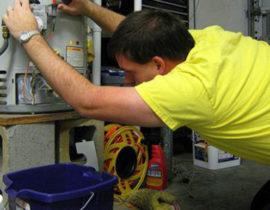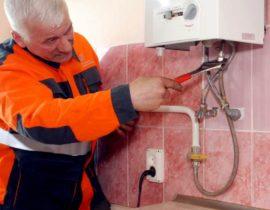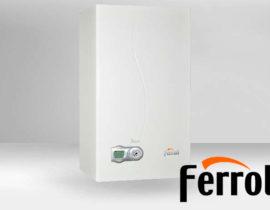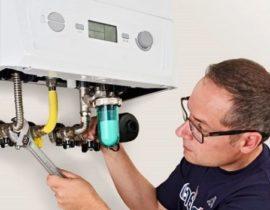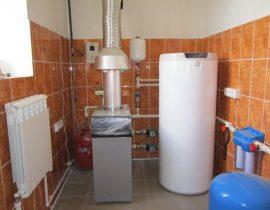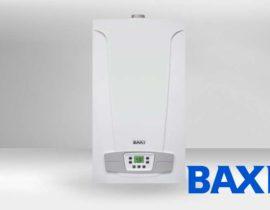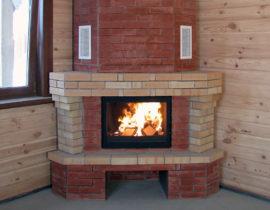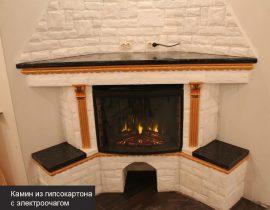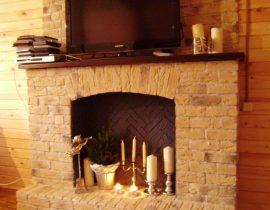When looking at gas bills, you can often see that fuel consumption increases in certain months. In most cases, this is due to the beginning of the heating season, when blue fuel acts as home heating. Everything would be fine, but how to explain the high gas consumption in the spring months? There are several reasons why this happens. Let's analyze each of them and try to eliminate it.
Content
- The boiler does not turn off or turns off, but rarely
- How is it manifested?
- What to do?
- Boiler temperature set incorrectly
- How is it manifested?
- How to decide?
- Scale on the heat exchanger
- How is it manifested?
- How to decide?
- Several unusual reasons
- How to eliminate high gas consumption in the boiler: general tips and tricks
- Questions and answers
- Video review of the causes of high gas consumption in the boiler
The boiler does not turn off or turns off, but rarely
The gas boiler has automation that fully regulates and controls all processes. If any part of the board is defective, this may cause the thermostat to not work.
The heating boiler is switched on only when a temperature difference is created at the outlet from it and at the inlet. The return flow entering the heater, which has passed through all the radiators, starts the automatic process of turning the boiler on for heating.
The reasons why the boiler is constantly working and does not turn off automatically may be the following:
- Incorrectly selected boiler power - often the problem is faced by residents of private houses, the area of \u200b\u200bwhich is more than 100 m2. In order to save money, conventional 7 kW parapet boilers are used, which simply cannot cope with the load. In practice, it looks like this: the boiler turned on, heated the water, the pump drove it through all the radiators. The return flow has not yet warmed up, so the boiler continues to work. It would be time to turn off, but the boiler continues to work, because while the coolant passes a huge circle, its temperature drops again on the return, which makes the gas equipment work for wear in the truest sense of the word.
 Incorrect installation of the entire heating system – old cast-iron batteries of large volumes are installed on the line, which are quite difficult to heat. The pump drives the coolant throughout the system, and the water has time to cool down on the return, so the boiler does not turn off, but continues to function in the usual mode.
Incorrect installation of the entire heating system – old cast-iron batteries of large volumes are installed on the line, which are quite difficult to heat. The pump drives the coolant throughout the system, and the water has time to cool down on the return, so the boiler does not turn off, but continues to function in the usual mode.- Weak pump, its malfunctions - the coolant does not have time to go through a full circle, and the return line cools down pretty much during this time.
- There is a room thermostat, but the windows are often open in the room – the boiler starts up because the temperature in the convectors is constantly low due to the cold air entering the apartment.
- Problems with the thermostat and control boardthat incorrectly give ignition commands. It often happens when there is a voltage drop in the network.
How is it manifested?
Overloading of the boiler can be determined by the following signs:
- It works without stopping for 3-5 minutes, after which it turns off for a few seconds and starts up again. It is detected by the characteristic sound of the burner ignition.
- It is very hot in the room, and the boiler is set to the minimum values.
Naturally, at the end of the month an unpleasant surprise awaits you in the form of exorbitant amounts for gas, so the problem needs to be addressed.
What to do?
The first thing to do is make sure it's correct the gas equipment itself. To do this, you should call specialists who will diagnose the boiler and tell you how to solve the existing problem with excessive gas consumption.
Usually, if the boiler is working, it is recommended:
- Check the operation of the pump and the correct installation of the heating system.
- Installing a thermostat. The boiler will switch off forcibly, when the coolant heats the battery to a certain level.
Thermostats simultaneously solve two problems: they control the temperature in the room and make it as comfortable as possible and save gas, forcing the boiler to “rest” when the desired temperature is reached.
Boiler temperature set incorrectly
For example, you decide to save money in the winter and keep the temperature in the room around 18℃. It seems to you that if you put the boiler on 1 (maximum 2), then you will create a pleasant microclimate and save gas. But in practice everything turns out differently. You will spend 2-3 times more gas than the boiler would stand at 3-4. A paradox, but quite understandable from the point of view of physics.
The problem is especially relevant in large heated areas, when the boiler heats water, the pump pumps it, and while the coolant bypasses all the radiators, it returns already cooled down. This encourages the continuous operation of your equipment. Accordingly, the boiler practically does not turn off, but constantly works and spends more gas than at higher regulator rates.
How is it manifested?
In addition to an increase in gas consumption, the problem manifests itself in cold batteries. That is, the coolant does not have time to heat the radiator in full. Saving is so-so. Especially if you have cast-iron batteries and there are at least 5-6 of them in the system, it is irrational to set a value on the boiler less than 2-3.
How to decide?
The problem is solved in a simple way: to reduce gas consumptionjust add gas. Read the instruction manual if you haven't already. In most cases, manufacturers recommend setting the boiler at a minimum of 50-60℃. Do not ignore this advice and you will save money.
Scale on the heat exchanger
The situation is dangerous because the boiler can work with increased load, which sooner or later will lead to overheating of the heater and its failure.
If you are offered to do preventive cleaning of the boiler once a year - do it. It's not a waste of money, trust me. Many people think that such additional services are not needed, but when you notice a large gas consumption in the boiler, take your words back. Let's take a closer look.
The heater is responsible for heating the water in the heating system. A kind of metal container, the water in which is heated by our gas. Further, warm water follows the system, returns and the process repeats. Metal may oxidize if exposed to water. Due to the temperature difference, a kind of scale is formed.
How is it manifested?
 A few signs that there is scale in the boiler:
A few signs that there is scale in the boiler:
- The temperature rise in the boiler, but the lack of heat in the house. Batteries do not keep the heat that should be at 60-70℃ set in the boiler.
- High gas consumption and slightly warm batteries.
- The boiler is practically not switched off.
The main thing to pay attention to is the lack of reaction of the boiler to an increase in the amount of gas. That is, you have added gas and are waiting for heat, but in fact there is none.
How to decide?
The contamination of the heater is determined empirically, that is, the boiler should be disassembled, removed and inspected for contamination. Doing it yourself is not recommended, as there is a risk of spoiling the details.
If scale is detected, it should be cleaned. Specialists use acidic solutions that dissolve a dense precipitate. To avoid possible gas overruns, do not ignore the annual descaling of the heater.
Several unusual reasons
Few people think, but even such a trifle as the lack of insulation of walls, windows and floors can lead to excessive consumption of gas in the heating system. If your housing does not hold heat well, and this is facilitated by gaps in the walls, cracks, any convectors will cool down faster and heat up worse.
What does this lead to? That's right, to the non-stop operation of the same boiler, the return water of which is so cold that it does not allow the equipment to turn off as intended by the designers.
Saving on the boiler can also be the reason for its constant operation without shutdowns, when there are more than 10 convectors in the heating system, and the power of gas equipment is hardly designed for 3-4 apartment batteries.
If you do not know which boiler will be better in your case, resort to the help of specialists and companies that will help you correctly draw up a plan for the heating system and orient you in the power of the boiler. The miser always pays twice.
Another atypical problem that few people pay attention to (and in vain!), Is a gas meter malfunction. This ultra-precise device can also fail and incorrectly display values.
If there is a suspicion that the meter is winding even when the gas is turned off, be sure to report this to the gas service. It makes no sense to pay for air when the room is cold. If there is a malfunction, the device should be replaced with a new one.
The low quality of the supplied gas, which the consumer cannot verify in any way, has a different heat capacity. It seems to you that the meter is winding, and the heater itself is not working well, the batteries are cool. Do not rule out such a possibility.
How to eliminate high gas consumption in the boiler: general tips and tricks
The most correct and accurate advice in this situation would be to call the gas workers. They will test the boiler for faults, and they will look into the heater for scale, and check for leaks if necessary.
You can do the following with your own hands:
 Insulate walls, window slopes and the floor - the heat consumption will be less, the coolant will cool down longer, the boiler will be able to rest from work.
Insulate walls, window slopes and the floor - the heat consumption will be less, the coolant will cool down longer, the boiler will be able to rest from work.- Set the temperatures on the gas boiler that the manufacturer recommends - do not be afraid to set 5-6 in severe frosts. This will not cause such an overrun of gas, which will be 1-2.
- Check for air in the system by periodically bleeding a little water in the radiators.
- Check the serviceability of gas equipment before the start of each heating season.
- Correctly calculate the boiler power for the entire heating system.
If you smell gas, call the gas emergency service. Overflow can also cause leakage.
Questions and answers
This will not help, because the coolant will not have time to heat up your batteries, it will quickly cool down and return to the heater. Accordingly, the boiler will work almost non-stop. Try adding more gas, if it does not help, then you need to increase the power of the boiler itself by replacing it.
It is better to buy a new one, and further processing from scale should be done only with special tools and according to the rules. Call special services that will help in solving the problem.
Check if the return filter is clogged. To do this, unscrew the thread on the pipe. Perhaps, due to poor-quality water, debris has accumulated there, which prevents the full passage of water into the heater. It is also necessary to exclude scale on the heater and, if necessary, clean it.
Yes, gas quality plays an important role in the heating process. If the proportions of the main units change, there is a risk that you will have to pay more, but it will still be cold.
Video review of the causes of high gas consumption in the boiler






